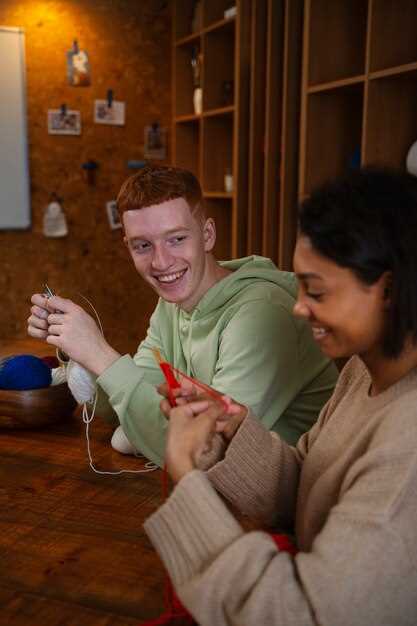Recommendation: Reserve 7 minutes after dinner for a focused check-in; set timer, share one win, one worry, one request. This micro habit proved helpful within a week; goal: restore closeness in 30 days, change comes fast when both invest minutes daily.
In practice, schedule a brief meeting every evening, alternate who opens; form a simple script to avoid spirals: “I feel…, I need…, I appreciate…”. Reading responses aloud worked well; silence gone; partners seem more connected, less stuck in old patterns. When thinking about triggers, label feelings instead of blaming. Try timing each segment: 90 seconds for talk, 150 seconds for listening, 60 seconds for plan.
Data from shared logs: many nights brought rapid shifts, translated into better relational metrics: fewer angry texts, more shared meals, improved sleep quality. If you think this sounds small, remember intent matters; invest minutes, not months of therapy. For last step, write vision for next 90 days, note various milestones, mark behaviors you wanted to keep. Dont expect perfection; yeah, progress stacks. Effect on daily life becomes measurable within weeks.
Practical Roadmap for Rebuilding Connection and Joy
Commit to three focused check-ins per week: 10 minutes each evening after work.
-
Week 1 – low-friction contact: exchange photos daily; each partner posts one short caption explaining why moment made them happy; no fees, no pressure; goal = rebuild consistent presence in each other lives.
-
On second week introduce a 45-minute meeting once per week; use a one-page form with three prompts: highlight, concern, next-goal; theyre encouraged to complete form before meeting then exchange answers at meeting start.
-
Set micro-events at fixed times: 60-minute movie night twice monthly; 90-minute walk three times per week; 2-hour trip-planning session once per month; small events create more shared memory without huge cost.
-
Use posts for gratitude: reserve one private chat thread for short praise posts; share photos from past trips or recent moments; look through old photos together for 20 minutes once a week; this trains attention toward happy patterns.
-
Conflict protocol: many couples agree on a 24-hour pause before escalation; communicate using “I felt” statements only during first 10 minutes of meeting; point of pause is de-escalation, not avoidance; if silence gone too long, schedule a check within 48 hours.
-
Planning horizon: allocate one monthly session for planning bigger events; pick candidate months like october for short getaway; brainstorm dream destinations such as brazil; estimate fees; set one concrete booking point within three months.
-
Measurement loop: track times met, meeting outcomes, trips planned; set a clear goal (for example: ten check-ins per month, three substantive meetings per month); review progress in one short article-style post each month so partners can look back and remind themselves why effort continues.
- Quick tips: if theyre distracted, pause checklist; one sentence apology works faster than long explanation.
- Use exchange of small favors as calibration: trade a movie-night choice for a chores-free morning; this keeps reciprocity visible.
- When trust slowly comes back, plan a low-risk trip; even a single day trip creates huge uplift compared with months gone without contact.
- For ongoing motivation, collect photos, posts, notes in a shared folder; review during planning sessions to spark ideas for more connection.
Define the 777 Framework: 7 Minutes, 7 Days, 7 Small Actions

Start with one concrete habit: spend 7 minutes each evening on a focused check-in for seven consecutive days; set a timer, sit facing partner, use a single small action per session; treat first week as baseline, take notes.
Seven micro-actions (sample): 1) 30-second genuine compliment about something you both lived; 2) ask one specific question about school or work; 3) share a short memory involving parents or grandparents; 4) offer a quick practical help like handling an email or chore; 5) say a five-word apology when needed; 6) plan a 10-minute micro-activity for weekend; 7) learn one french phrase together and practice once daily.
Measurement plan: record session completion rate daily; rate mood before/after on 1-5 scale; log conflict episodes per week; aim for 80% session completion across four weeks; expect measurable drop in heated issues by 30% within first month if sessions kept seriously.
Micro-script examples: use simple prompts: “Point of check-in: one success today?” “What helps you right now?” “I believe this small change will matter; would you try?” If stuck, name a neutral event: “october dinner with jose and grandparents felt different; can we talk about why?” Insert french phrase with smile to break tension: “tu veux un café?”
Troubleshooting: if partner feels apart, shorten session to 4 minutes; if sessions feel scripted, swap actions each day; if one person says they wouldnt join, try role reversal for a week; avoid long lectures; keep tasks very specific so progress appears quickly; track answers, adjust form of prompts every seven days until routine fits groove.
Practical note: this structure helps build stronger relational rhythm; small consistent actions create difference much faster than sporadic grand events; believe small repeats; everything listed here gives concrete ways to share focus, address issues easily, and change habit patterns without excess effort.
Implement 7-Minute Daily Check-Ins: Prompts that Spark Real Talk
Begin each 7-minute check-in by taking 60 seconds for an opening: partner A states current mood plus one recent win; partner B listens without interrupting then gives a quick 30-second reply; swap roles for final minute so both feel heard.
Rotate prompts between light topics, some deeper ones; invest two sessions weekly in history-focused prompts to surface patterns; shift mode from practical to curious when going into old stories; couples often report surprising details that have been overlooked, like a brazil trip memory that unlocked culture conversations.
Hold check-ins face-to-face, phones out, eye contact prioritized; knowing what to ask reduces awkward pauses; if conversation stalls, move to a single-question prompt that invites a concise comment or example; I found couples improved connection without long therapy sessions when they kept timing strict.
Use this dozen prompt set: 1) Name one mood now; 2) One small win from today; 3) Something you want support with; 4) A childhood story that shaped you; 5) One work highlight; 6) One inspiring moment you found today; 7) A favorite travel memory, maybe brazil experiences; 8) A cultural habit you value; 9) One worry that has been nagging; 10) What move would make you feel safer; 11) If shes quiet, invite her to share a personal story about themselves; 12) One answer you wish to hear from partner.
Track frequency, results, metrics: perfect check-in cadence often equals daily; if needed, reduce to five minutes twice daily for extra practice; invest 21 days, note who replied fastest, what comments sparked follow-up, use every check-in as an opportunity for low-risk sharing.
Plan Weekly Fun Dates: Quick Activities that Reignite Playfulness
Schedule one-hour mini-dates every weekend: 45-minute activity, 15-minute check-in. Block same slot on shared calendar, set reminder 30 minutes before, mark as non-negotiable, decided by partners.
Quick at-home options: 30-minute cook-off using single mystery ingredient, 20-minute tabletop trivia with timer, 15-minute playlist swap while sipping tea, 10-minute pillow-talk prompt list; such short formats reduce setup hassle, improve ease of entry.
Long-distance version: 25-minute face-to-face walk: join video call, choose parallel route, pause every five minutes to show scene. 40-minute synced movie session: use app, start same timestamp, mute while texting, resume after 30-minute intermission. amazon scavenger hunt: each partner buys small item under $15, unwrap during call while watching reactions.
Frequency metrics: Aim once weekly for first six weeks; if energy allows, increase to three-time weekly micro-dates. Keep one-third spontaneous; log durations in shared note app, for ease use timer, review after four sessions to adjust difficulty levels. Track stuck points where communications broke, note those entries for repair.
When youve been stuck: reserve 90 minutes weekly for planning session; if havent found ideas, swap responsibility each week, use two-minute brainstorm timer, buy puzzle kits on amazon, order ingredients for one recipe. If there is conflict, pause date without blame; keep space, reschedule within seven days so pressure gets harder to accumulate.
Sample case: kelsey wanted solo sketch night, mark chose sidewalk photography; before sessions both sent three prompts between themselves; while staying in york they set face-to-face coffee once per month during visits; I heard about that approach, myself decided to try similar plan with friends, results really improved communications, not forever but marked clearer ties between partners.
Use a 3-Step Conflict Reset Script: Turn Spats into Understanding
Pause now: name feeling, announce a 10-minute break, agree on a restart time for face-to-face repair.
Step 1 (first) – Pause: say “I need 10 minutes.” set specific return time, note schedules if a late meeting or trip will interfere. this prevents escalation when one partner is watching screens or stuck in work zone.
Step 2 – Opening: after cooldown, each person gets 90 seconds to state one topic, one feeling, one request. use “I” statements only, avoid blame that pushes partner into defense zone. imagine youd say it calmly in front of family; that framing reduces sarcasm or kidding that kills clarity.
Step 3 – Repair: pick one micro-step each can commit to for next 24 hours. commit to a quick face-to-face check at agreed time, note progress in schedules, adjust if travel or an Ohio trip started earlier than expected. if they miss a check, address missed promise with curiosity, not accusation, to keep communication without escalation.
| Step | Timing | Tam senaryo |
|---|---|---|
| 1 Pause | 10 dakika | “I need 10 minutes to calm down. I’ll come back at [time].” |
| 2 Opening | 90 seconds each | “Topic: [issue]. Feeling: [feeling]. Request: [specific action].” |
| 3 Repair | 24 saat | “My micro-step: [action]. Your micro-step: [action]. We’ll check at [time].” |
Metrics that worked for couples: 10-minute pause, 90-second openings, one micro-step with a 24-hour check. couples who stuck to these metrics reported fewer repeats, clearer vision for next steps, better coping with late-night triggers, less replay of old things that started fights. if you wanted proof, note one case where a married pair from Ohio used scripts before a trip, then avoided an event meltdown; they knew when to stop watching TV when upset, used schedules to plan reconnection, hoped to avoid resentment without policing.
Practical rules: must pause instead of continuing a fight, must state one request only, must follow up even if busy. if follow-up fails, don’t kill momentum by silence; address failure with a short check-in. use timers, put restart time on phone, label message “conflict reset” so partner knows you’re serious without escalating conversations into blame or long lectures.
Track Your Progress: 30-Day Follow-Through Log that Keeps You Accountable

Begin with a 30-row spreadsheet labeled Day 1–30, columns: Date, Planned Task, Duration (min), Mood (1-10), Completion (%), Quick Note. Enter values within 30 minutes post-activity. Use conditional formatting: green if weekly average >=70%, amber if 50–69%, red if <50%. Target: 20 minutes focused connection per day, 5 mindful check-ins per week, one reflective writing session every third evening. Track cumulative completion as running total; flag drop >10% from previous week for immediate action.
Assign accountability: choose one partner as reporter, schedule 15-minute review on days 7, 14, 21, 30. Send daily snapshot via SMS or email, include Date, Completion(%), Short Note. If no response within 24 hours, escalate to secondary contact. Use simple scoring: +1 for task done, 0.5 for partial, 0 for missed. Convert daily scores to weekly percent; share bar chart during review. If weekly trend declines two consecutive periods, change protocol: increase check-ins, reduce task length, or invite external author for two coaching sessions.
Dont skip qualitative notes: while studying routines, write short entries about context – hanging with partner, moved houses or moved across country; mark moments you forget details later. If you wish to adjust targets, reduce minutes by 50% for two days. Add location tags like ohio when relevant. If distraction came from netflix released content, log minutes lost; if researching pulled attention, record query, link. When one of you wrote a blunt message, copy excerpt; note change in tone, preserve stories for everyday review, tag entries as quick observations. If one must leave, note dates, different timezones; send itinerary to sameena or contact listed afar, include there timestamp. Label opening entries during raw writing as pretty, flag when life feels harder, when routines seem challenging; schedule third review for similar incidents; capture short quotes like ‘yeah’, ‘ever felt this’ for later reflection; loop partners into summaries again.


 Evliliğimizi Nasıl Canlandırdı: 777 Yöntemi – Daha Eğlenceli ve Mutlu Birlikte">
Evliliğimizi Nasıl Canlandırdı: 777 Yöntemi – Daha Eğlenceli ve Mutlu Birlikte">

 Benefits and Challenges of Same-Religious and Interfaith Marriages – A Philosophical and Ethical Perspective">
Benefits and Challenges of Same-Religious and Interfaith Marriages – A Philosophical and Ethical Perspective">
 How Our Dating Site Has Helped Millions of Couples Find Love">
How Our Dating Site Has Helped Millions of Couples Find Love">
 When Is It Okay to Give Your Partner a Second Chance – A Practical Guide to Forgiveness in Relationships">
When Is It Okay to Give Your Partner a Second Chance – A Practical Guide to Forgiveness in Relationships">
 11 Signs You’re Settling in a Relationship—and How to Handle It">
11 Signs You’re Settling in a Relationship—and How to Handle It">
 Onların İşine Gelmez – Partnerinizden Sırları Ne Zaman Gizlemelisiniz">
Onların İşine Gelmez – Partnerinizden Sırları Ne Zaman Gizlemelisiniz">
 Ortak Ebeveynlik ve Paralel Ebeveynlik – Aradaki Fark Nedir ve Ailenizi Nasıl Etkiler">
Ortak Ebeveynlik ve Paralel Ebeveynlik – Aradaki Fark Nedir ve Ailenizi Nasıl Etkiler">
 Bir Kadının Maskülen Olması Ne Anlama Gelir – Kadınlarda Maskülen Enerjiyi Keşfetmek">
Bir Kadının Maskülen Olması Ne Anlama Gelir – Kadınlarda Maskülen Enerjiyi Keşfetmek">
 Eşimin Tüm Eski Sevgilileriyle Arkadaş İlişkisi Var – Sınırları ve Güveni Yönetmek">
Eşimin Tüm Eski Sevgilileriyle Arkadaş İlişkisi Var – Sınırları ve Güveni Yönetmek">
 Önce Arkadaş Olmak Daha mı İyi? İlişkiler ve Flört İçin Faydaları">
Önce Arkadaş Olmak Daha mı İyi? İlişkiler ve Flört İçin Faydaları">
 Mükemmel Bir Adam Değilse? Yine Evlenmeli Misin?">
Mükemmel Bir Adam Değilse? Yine Evlenmeli Misin?">